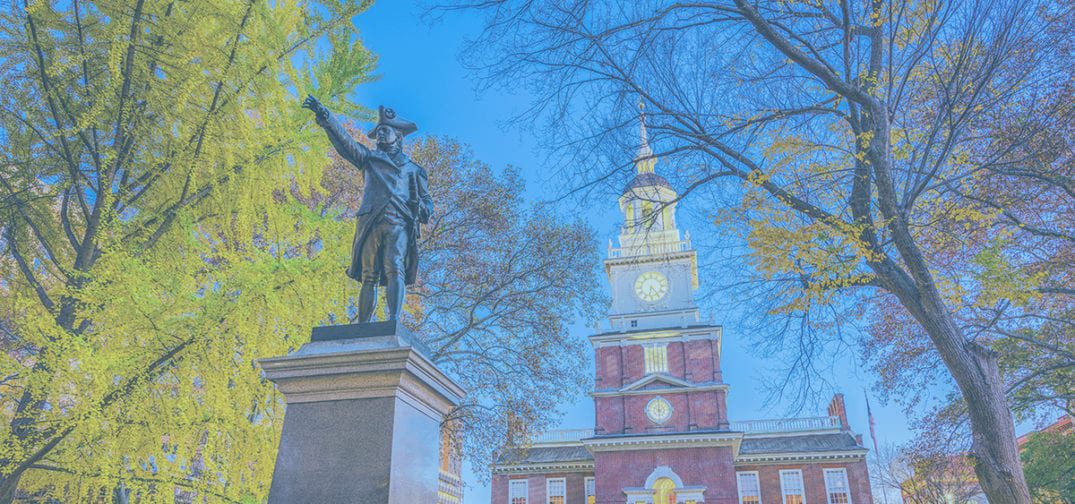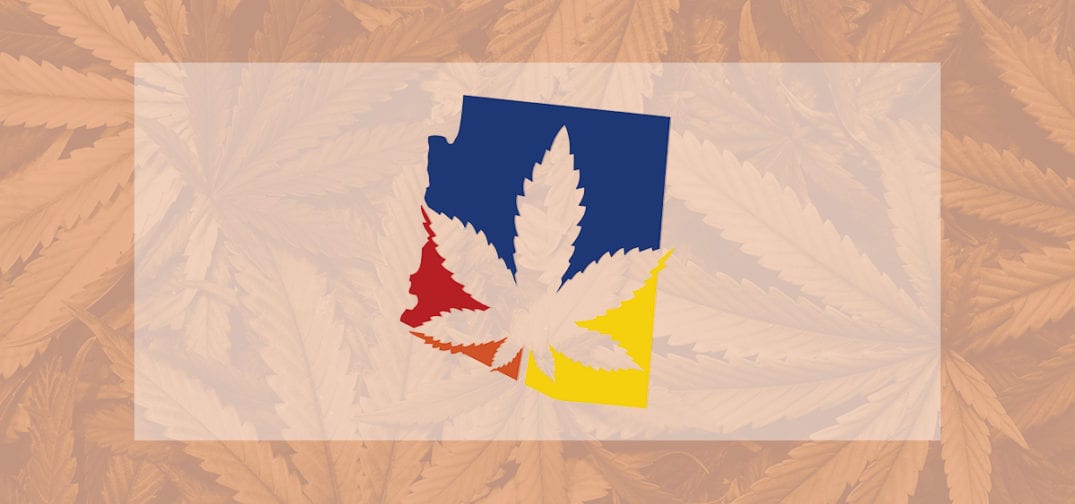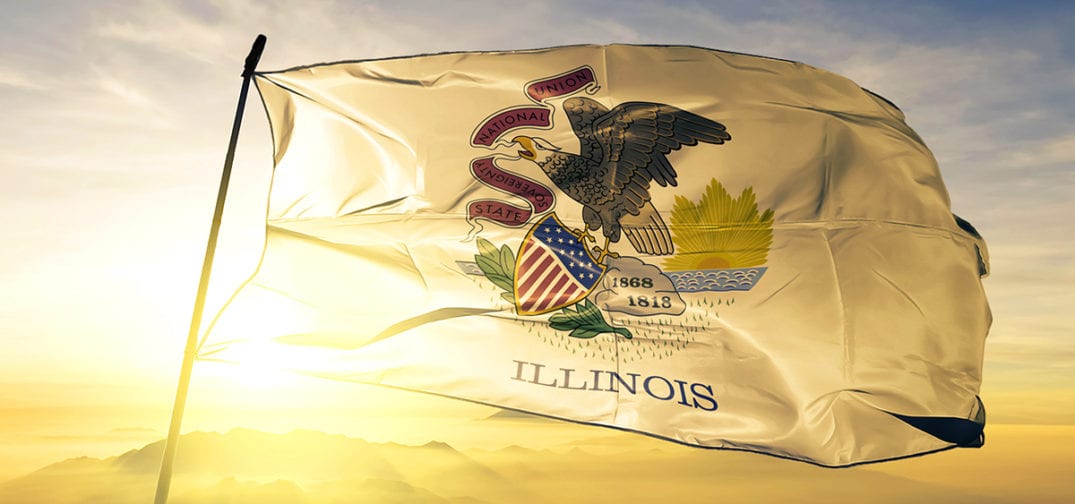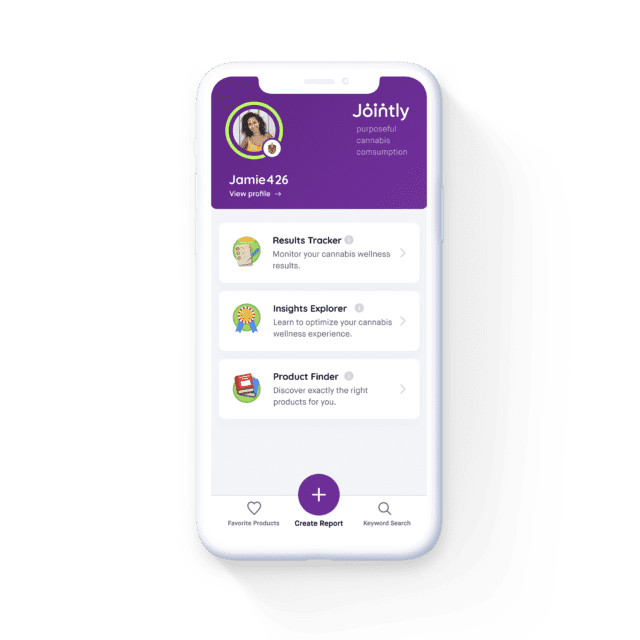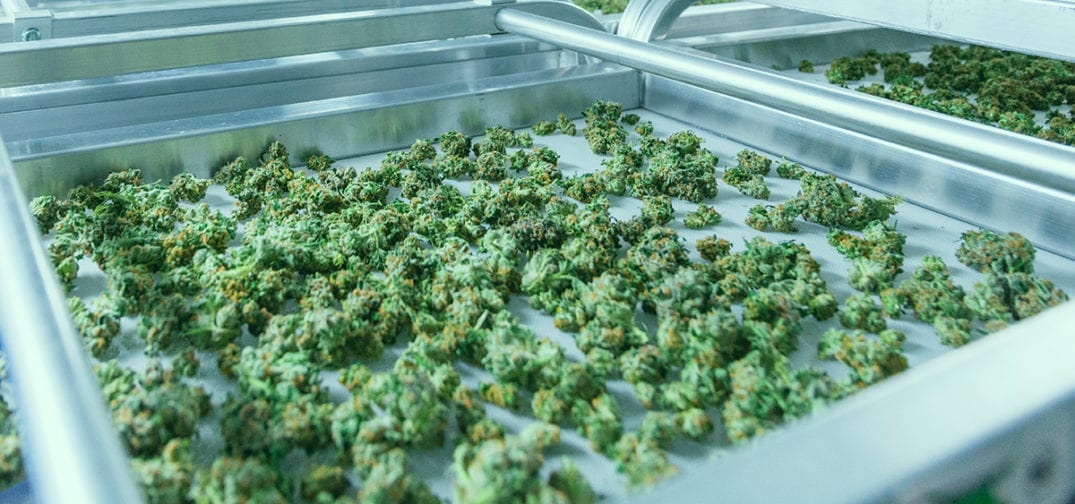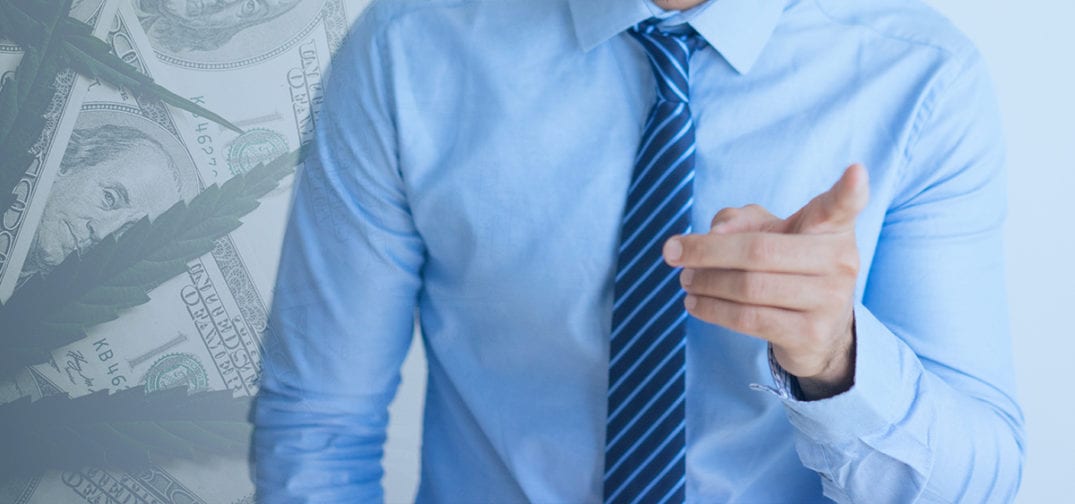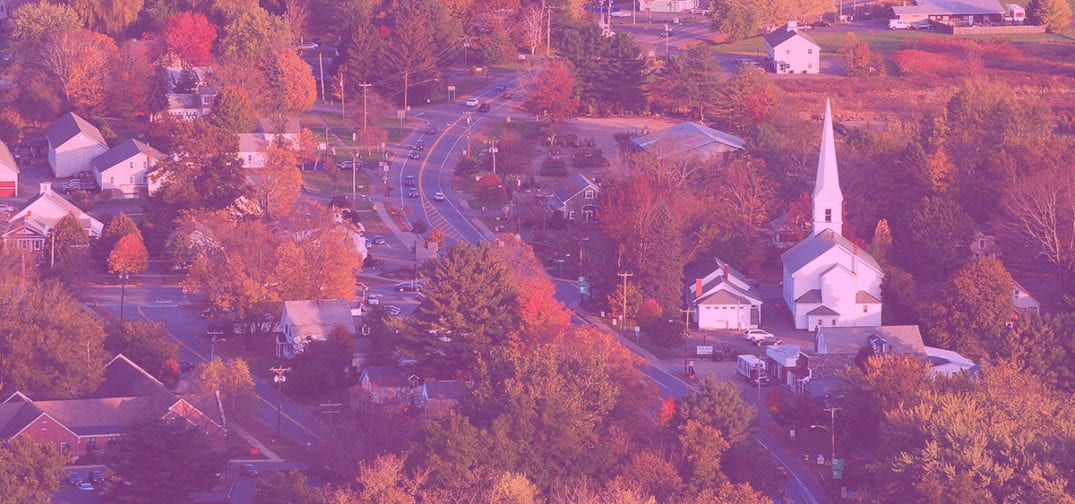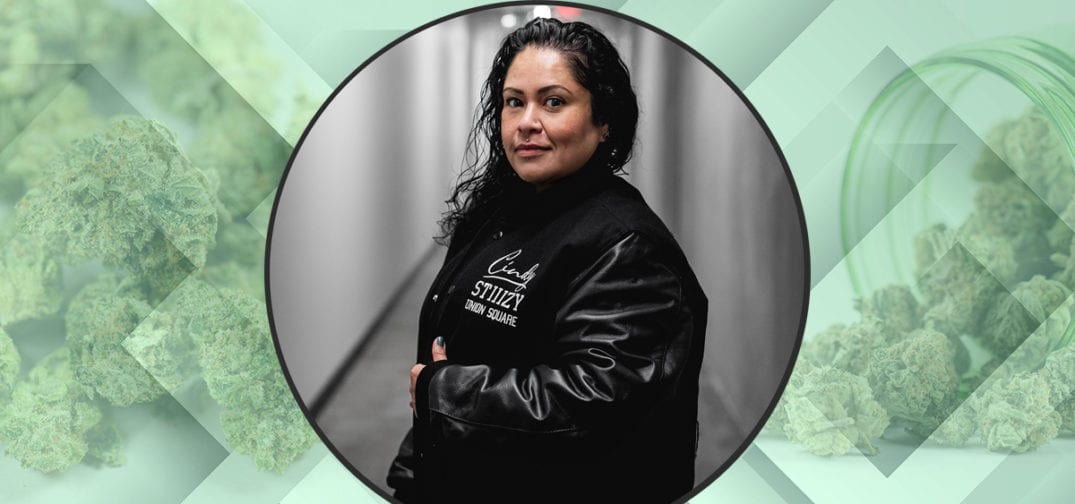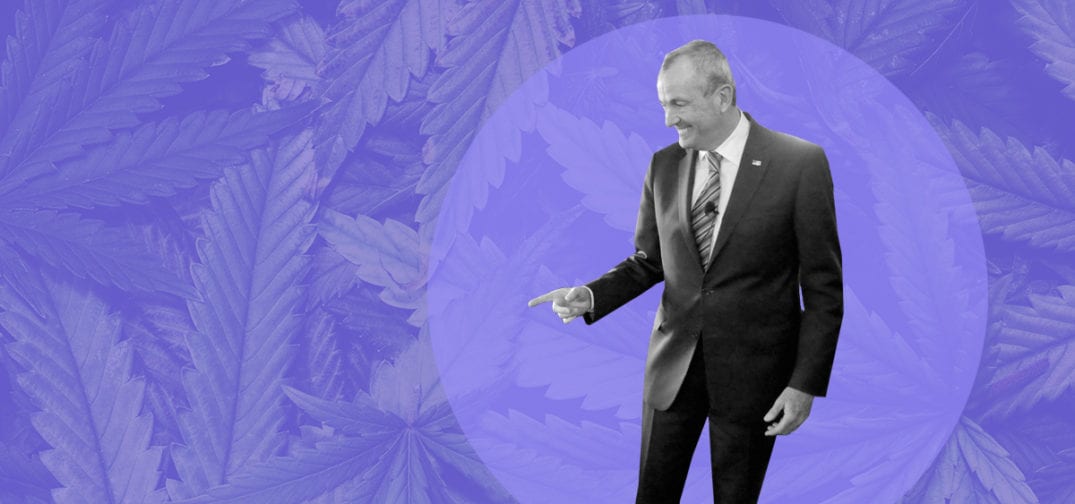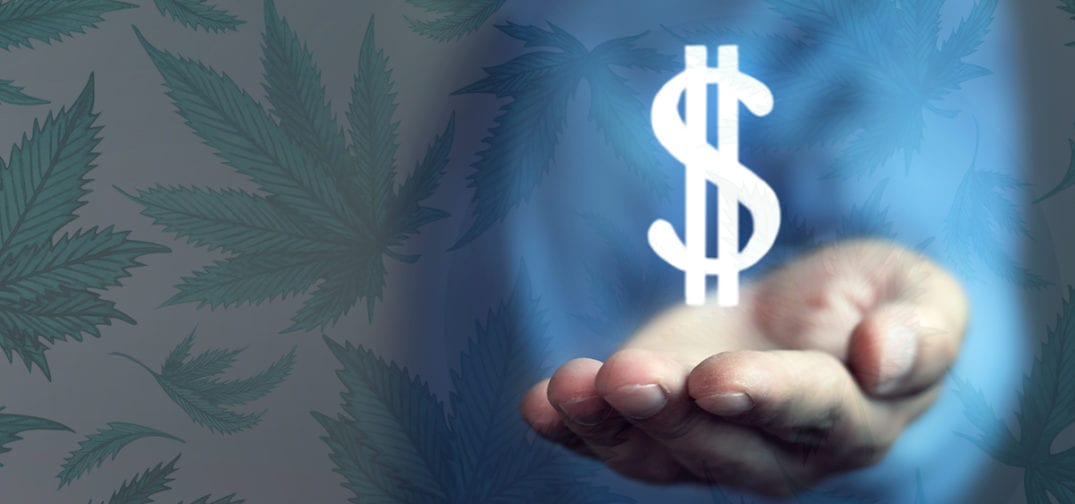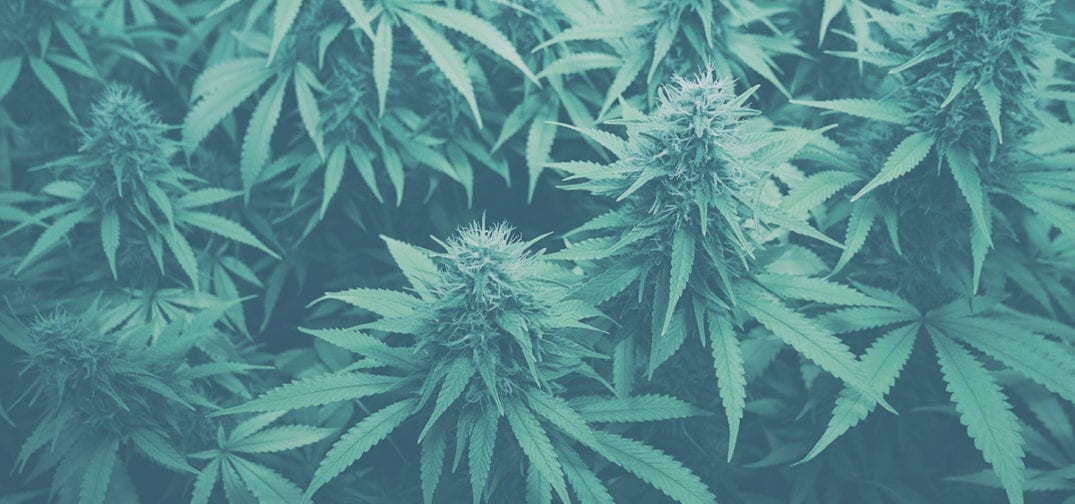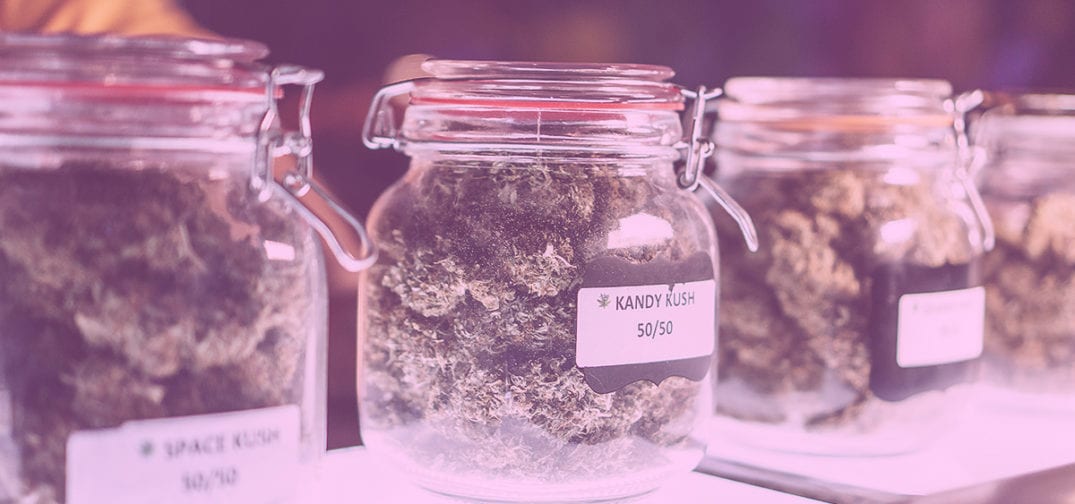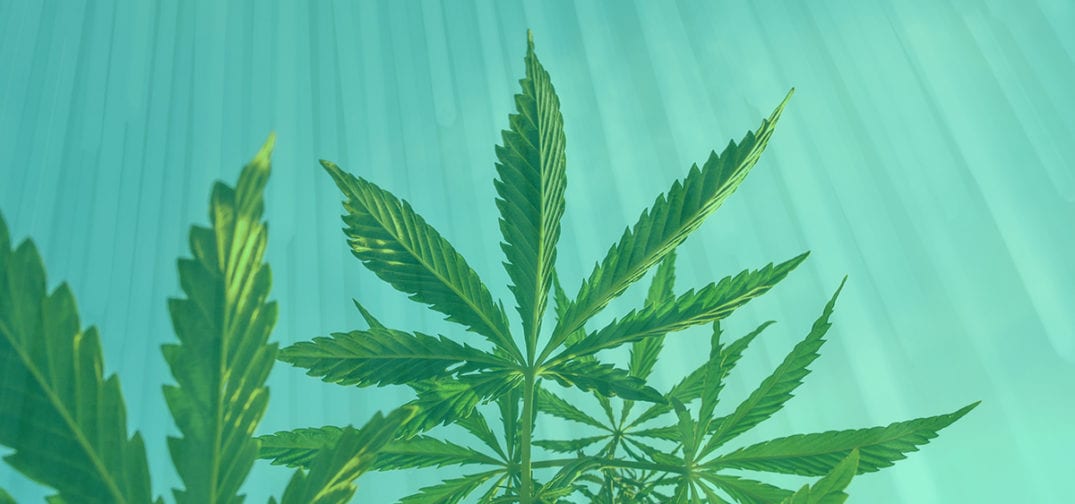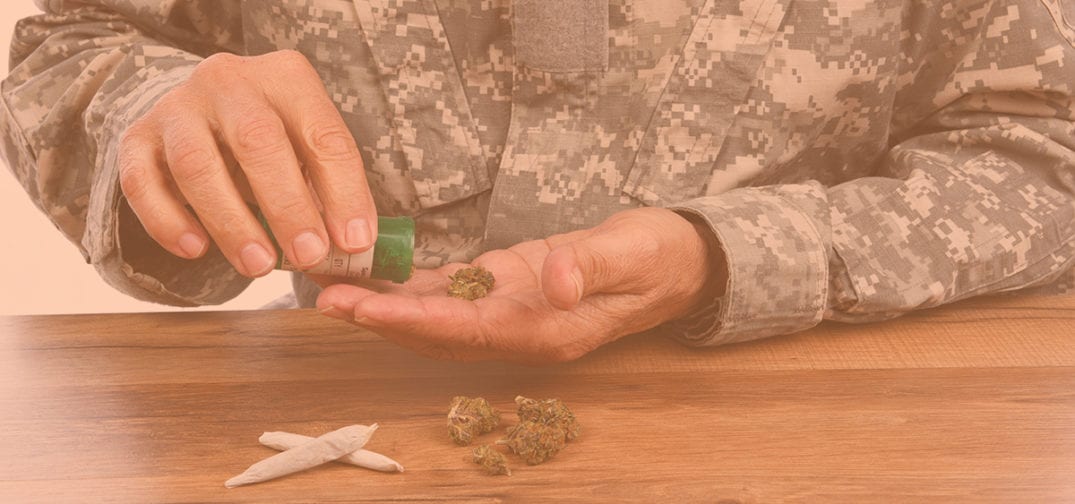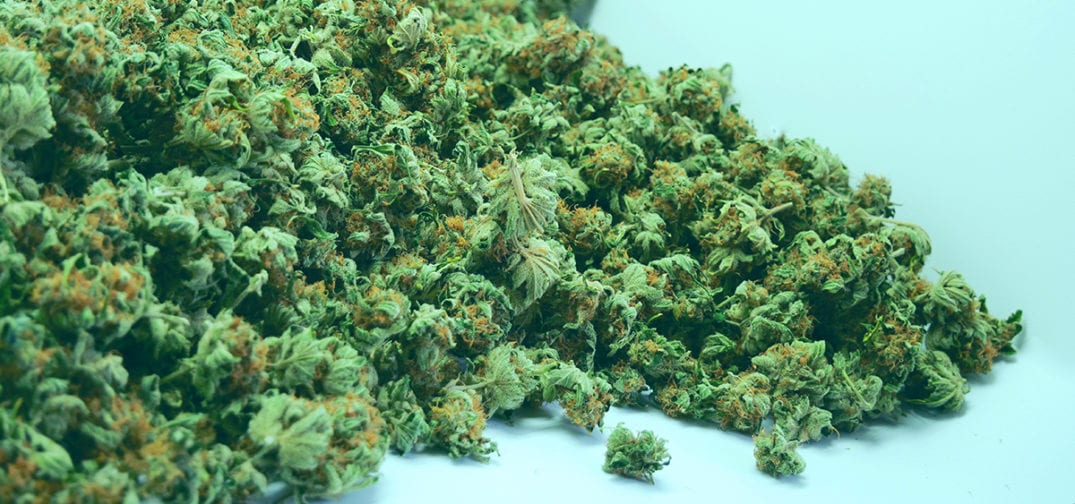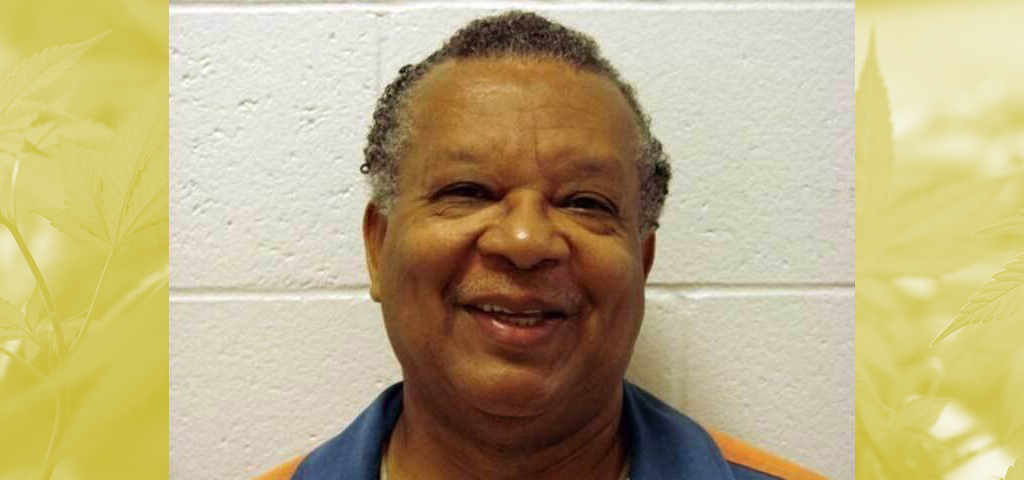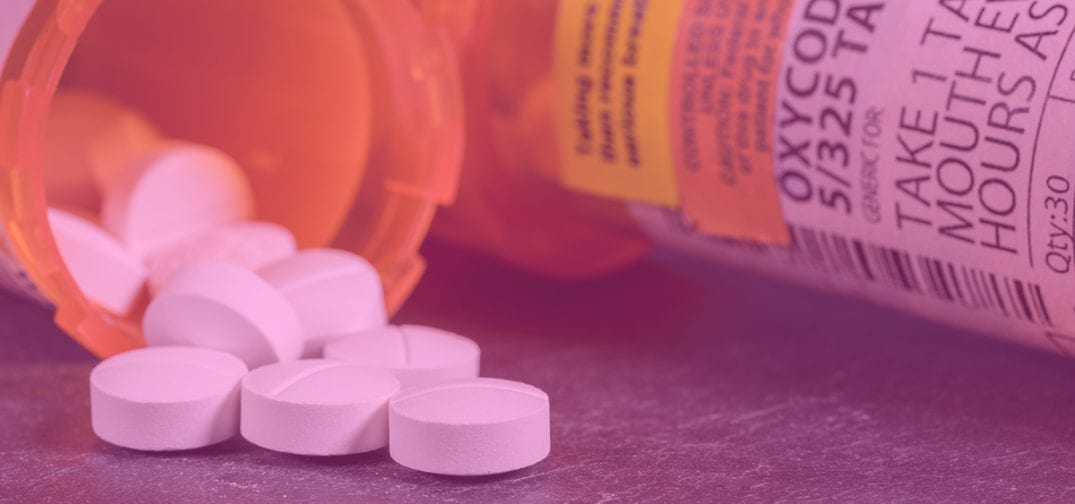For decades, public displays of appreciation for cannabis and cannabis culture were relegated mainly to smoke shops — the one-stop-shop for everything cannabis, except for the plant itself.
In this episode of the Ganjapreneur.com podcast, our host TG Branfalt catches up with Kenny Wright, who owns their local smoke shop in Saranac Lake, New York. Tune in to hear how the smoke shop industry has adapted to changing times, what cannabis business owners can do to maintain healthy relationships with local authorities, tips for building a helpful and friendly business environment, Kenny’s predictions for the smoke shop business model as cannabis prohibition continues to crumble, and more!
Listen to the full interview below or through your favorite podcast listening platform, or scroll down to read through a full transcript of this week’s Ganjapreneur.com podcast episode.
Listen to the podcast:
Read the transcript:
Commercial: At Ganjapreneur, we have heard from dozens of cannabis owners who have encountered the issue of canna-bias, which is when a mainstream business, whether a landlord, bank, or some other provider of vital business services, refuses to do business with them simply because of their association with cannabis. We have even heard stories of businesses being unable to provide health and life insurance for their employees because the insurance providers were too afraid to work with them. We believe that this fear is totally unreasonable and that cannabis business owners deserve access to the same services and resources that other businesses are afforded, that they should be able to hire to consultation to help them follow the letter of the law in their business endeavors, and that they should be able to provide employee benefits without needing to compromise on the quality of coverage they can offer.
This is why we created the Ganjapreneur.com business service directory, a resource for cannabis professionals to find and connect with service providers who are cannabis-friendly and who are actively seeking cannabis industry clients. If you are considering hiring a business consultant, lawyer, accountant, web designer, or any other ancillary service for your business, go to Ganjapreneur.com/businesses to browse hundreds of agencies, firms, and organizations who support cannabis legalization and who want to help you grow your business. With so many options to choose from in each service category, you’ll be able to browse company profiles and do research on multiple companies in advance, so you can find the provider who is the best fit for your particular need.
Our business service directory is intended to be a useful and well-maintained resource, which is why we individually vet each listing that is submitted. If you are a business service provider who wants to work with cannabis clients, you may be a good fit for our service director. Go to Ganjapreneur.com/businesses to create your profile and start connecting with cannabis entrepreneurs today.
TG Branfalt: Hey, there. I’m your host, TG Branfalt, and thank you for listening to the Ganjapreneur.com Podcast where we try to bring you actionable information and normalize cannabis through the stories of ganjapreneurs, activists, and industry stakeholders. Today, I’m joined by Kenny Wright. He’s the co-owner of High Peaks Glassworks, an independently owned smoke shop based in Saranac Lake, New York. Full disclosure, he is my local smoke shop, so I do have a previous relationship with him, obviously. I don’t just go in there and buy a couple of papers and leave. I really like his company. I want to introduce him to all of you. How are you doing this morning, Kenny?
Kenny Wright: I’m great. Thanks for having me, Tim.
TG Branfalt: Now, super, super excited to have someone local. We don’t have a whole lot of cannabis associated businesses up here. Before we talk about your business and that whole process and that experience, tell me about yourself, man. How did you end up in the cannabis space?
Kenny Wright: Well, I mean, I’ve always had more of an interest in cannabis and it’s just been the forbidden fruit throughout our lives, so I’ve always been more of an anti-authoritarian, which is ironic that I joined the military, but yeah.
TG Branfalt: How do you go from the military to starting a cannabis-based associated ancillary business? How does that process play out?
Kenny Wright: Well, I mean, society is changing. I’ve always wanted to be in the space, more on the grow aspect of things, and that’s why I moved to Colorado for snow because I’m a snow junkie. I love riding my snowboard, but Colorado was a progressive state when I moved there in 2009. I had gotten into that space. I had friends that were already doing it, so it was just a very easy transition for me. I had friends that were running grow stores, so I learned that aspect of the business. More ancillary, but still at that time I was able to legally grow cannabis, so I did so. It was very enjoyable and hopefully, at some point, New York can progress themselves into allowing us fine citizens to do something similar. Yeah. Then, all of my family is here, so I just… and I’ve always returned home in the summer because it’s gorgeous here. It was just a very easy thing for me to do and come home, so I came home.
TG Branfalt: Talk to me about opening up the shop. Was there any… we’re in a purple part, more red part of the state, but was there any pushback from local officials or individuals? Tell me about the culture at the time.
Kenny Wright: When we initially opened the store, I mean, I had reservations because it is a small town, and my family is all from here. Social perception wasn’t as it is today. Things have changed dramatically in the last five years, so there was, I don’t want to say pushback, but there wasn’t an open embrace. There was another gentleman who was running a store, which was another part of my reservation. I didn’t want to step on his toes, but after meeting him, he wasn’t providing the town a solid place. He was more of a predatory business.
TG Branfalt: There’s a lot of that in this… especially in the-
Kenny Wright: There is.
TG Branfalt: … smoke shop side of it.
Kenny Wright: Absolutely. Unfortunately, there’s unethical people everywhere, but yeah, in this business, it seems to collect them. He was down the street, so I had had some reservations and eventually I just decided to put those aside and we opened up. We originally had a partner who also was… we had a falling out and we went our separate ways last year actually. I mean, we’ve been doing this for five years, but yeah. We opened up, completely renovated our store. Initially, town was pretty receptive because we have a nice store, we present ourselves in more of a gallery aspect of things instead of having just product everywhere, which is, from a consumer aspect, from my point, very disorienting, so I like to focus on products and just highlight what I have and bring in whatever customers are asking me for. Yeah, I mean, the mayor said we had about a year. These types of business-
TG Branfalt: Really?
Kenny Wright: … typically fizzle out in about a year. That was fuel to the fire, which the other gentleman did fizzle out in about a year, but he was a predator and, yeah, town wasn’t very receptive of him over time because he ran people out of his store. He was kind of a cartoon character.
TG Branfalt: Since you opened your shop five years ago, how has your business grown? What products do you see moving more now than moved five years ago? Tell me about the evolution of apparatuses as the cultures change.
Kenny Wright: Well, I mean, the concentrate industry is definitely moving most of the industry, I feel. A lot of the technological aspect of things, various vaporizers, even dry herb vaporizers are coming along, are getting more affordable, and the New York medical program is definitely allowing people to become consumers on legal aspect and get medicine that they wouldn’t otherwise be privy to.
TG Branfalt: Did you notice post medical legalization an uptick in the population that you might perceive as medical cannabis users?
Kenny Wright: Yeah, absolutely. I mean, I think the notion, in all things, the medical aspect, the warm and fuzzy feeling that comes along with that brought a lot of people who were otherwise on the fence or demonized cannabis. The CBD movement as well has done a similar thing. It’s definitely brought people out and changed their minds and gotten them off of the pharmaceuticals which have a lot of other side effects that don’t come along with cannabis and CBD products. Obviously, there’s the THC aspect of cannabis, but there’s CBD, which doesn’t have that negative, “negative”, depends your take on it. Yeah, it’s definitely moving things forward nationally and locally statewide. It’s great.
TG Branfalt: Let me ask you about CBD. I mean, I personally get emails and press releases and sample offers from dozens of CBD businesses every single day, so how have you navigated those muddy waters of CBD to ensure that the products you’re getting are to your standards and not some snake oil?
Kenny Wright: Well, I mean, initially when CBD was first coming up and getting more popular, I was just relying on distributors and trying to discern from… and do my own research as much as I could, so I could provide a quality product and know what I was providing and not get tripped up by all of the buzz words that are out there on the industry. Since then, one of my good friends has started his own farm in the Asheville area, Asheville, North Carolina area, Otherside Hemp. They grow all of their plants organically. They harvest themselves. It’s a smaller batch thing, so I’ve pretty much just shifted to sourcing from him because I’ve known him for 20 years and if I have a question or if there’s any concerns at any point, I can get a hold of him at 10:00 at night. He’s very available and he’s very open and honest. It’s ethics. I’m a huge ethical individual in running my store and that’s how I feel the industry needs to be because that’s really the heart of the industry as I see it.
TG Branfalt: What are some of the challenges for you being an entrepreneur in a very, very small town, I mean, especially with the coronavirus, I mean, we shut down pretty quickly and pretty hard? Tell me about some of just the broad challenges and then we’ll get to the COVID stuff.
Kenny Wright: Well, yeah. I mean, obviously small town, less traffic. We live in a very tourist economy. It’s middle of the mountains, very beautiful, but there’s not a huge population. Pretty good spread from town to town. We have… yeah, so as far as that goes, it’s challenging, but people here are willing and very much do support local businesses, which we’re very grateful for and thankful for all of our locals. I mean, people travel for a long time, an hour away, hour and a half, because they like us. You know what I mean? They’ve been to other places and they just genuinely like us. We don’t-
TG Branfalt: You let people bring their dogs in, which is really important.
Kenny Wright: Yeah. We don’t want customers; we want friends. You know what I mean? We want people to feel welcome in our store, whether they’re purchasing things or not. Obviously, we’re there to sell stuff, but we aren’t the “FU, get out of our store, if you’re not buying a product.” We like conversation, as you know, we talk every time you come in for at length. We’re part of the community and that’s how we’ve… we’ve worked our way into that. Initially, the town was skeptical, and I guess understandably so, but we’ve had our local law enforcement tell us that they’re okay with us, we’ve been vetted. It’s just, it’s nice that-
TG Branfalt: What is your relationship like with them? I don’t think I’ve asked you that, you in person.
Kenny Wright: It’s a very positive relationship. I mean, we’re not doing anything criminal, illegal. We’re not selling anything that we feel is gray area or unethical and they very much appreciate that aspect because we’re not trying to contribute to a problem that already exists. We’re trying to just… we’re selling inanimate objects essentially and CBD products, which are legal. Yeah, it’s been a good thing.
TG Branfalt: How did COVID affect your business? Obviously, you were shut down for a little while and were you able to access or did you seek any federal or state funding? Tell me about that sort of experience as a one-shot business that relies on that day to day.
Kenny Wright: Yeah. We didn’t seek any federal or state aid. I mean, we closed for I believe two weeks or something like that. I mean, it wasn’t a very long time. Enough to digest the regulations and rules that were coming out at the time. Because we are an owner operated business and we… we’re essentially in a loophole for the state regulations, we did appointments only. We required masks and just tried to continue as best as we could helping people. Social media became very important. I forwarded all of our store calls to my cell phone, so my phone was ringing off the hook, setting up appointments every day, trying to be as available as possible, but not expose myself and have a life as well. You know?
TG Branfalt: Yeah, yeah.
Kenny Wright: As much of as one was happening at the time. Yeah, I mean, it’s-
TG Branfalt: How has this been since the lifting of the “lockdown”? I mean, I remember when you first opened non-appointment. I had to stand in a line in order to get in. Was that something that was temporary? Are you seeing more traffic?
Kenny Wright: I mean, initially, when the government was pumping out a lot of the $600 extra unemployment payments, people had money burning a hole in their pocket, so it was definitely a large uptick at that point, but at the same time, you have COVID, so there’s a lot of people that aren’t coming out. People were coming, getting what they needed. We were mitigating the amount of people we were allowing in the store at the time, and even still, it’s typically like a one or two people and people keep their distance anyways because people are generally respectful of others here. Yeah, it was definitely a huge shift, but I’m just really thankful that we are owner-operated and we were able to continue.
The Rotary Club gave us $1500 in-
TG Branfalt: Oh, wow.
Kenny Wright: … grant contributions, which they did for several other businesses, which was incredibly moving and really solidified our feeling of being a part of the community.
TG Branfalt: That’s fantastic.
Kenny Wright: Yeah. It brought a tear to my eye, literally, and it was just humbling and, honestly, I never would have expected it. It wasn’t … because we’re like the redhead stepchild, the black sheep.
TG Branfalt: I know. There’s that super nice clothing store across the street, or right across the street. It’s-
Kenny Wright: Yeah. I mean, it’s… well, I mean, being a tourist town, a lot of people will look in my window and clutch their pearls when they see some of the products that I carry. That’s fine, whatever, but at some point, they’re going to have to come to terms with reality and how society is changing. It gives me a chuckle every time.
TG Branfalt: I want to talk to you. You mentioned at the top that you had joined the Navy. Can you tell me about your military experience as it related to the culture of cannabis?
Kenny Wright: I mean, there is no cannabis culture really in the Navy. There’s zero tolerance, regular urinalysis.
TG Branfalt: Had you smoked prior to going into the Navy?
Kenny Wright: I had once.
TG Branfalt: Okay.
Kenny Wright: Which I had gotten a waiver for, so-
TG Branfalt: You had to get a waiver for smoking one marijuana.
Kenny Wright: Yep. I mean, the military is pretty strict with that. Yeah. That was it. You know what I mean? The typical teenager try it, whatever, and that was it because it was whatever. I continued on with my high school career, but yeah, I joined the Navy out of high school and sailed around the world and learned to work on radar and shoot five-inch guns and experience a lot of different cultures, which made me appreciate America a lot more for the ability to change.
TG Branfalt: When was it after your military experience that you started smoking more cannabis?
Kenny Wright: Oh, I mean, shortly thereafter. Yeah. I mean, I didn’t wait until… I mean, I was out of the Navy in 2007 and I have been a consumer… I mean, I don’t really smoke a ton, but yeah, it’s… yeah.
TG Branfalt: I’m just trying to figure out because I’ve had veterans on this show and many of them, a couple of them, are combat veterans who it was a direct correlation or experience in the military, PTSD, to cannabis. Is that the sort of correlation that you might make? Was it your military experience that led you to smoking more, becoming a consumer and really-
Kenny Wright: No. I mean, not… I am very thankful and grateful that my military experience didn’t result in any trauma or anything because I know there’s a lot of veterans that have trouble with that and cannabis is incredibly beneficial for them, but it was just a… I prefer that to alcohol. You know what I mean? I don’t… there’s no hangover, you don’t feel like trash the next day. Alcohol is just… and not to say that I don’t consume a beer here and there because I do like alcohol, but it’s definitely far, far less of an enjoyable thing. You know what I mean? There’s just… and you can’t function when you’re on alcohol like-
TG Branfalt: Correct.
Kenny Wright: … which is a huge detractor from it. You have two or three beers, your speech is off, your coordination’s off, like you know that-
TG Branfalt: Can’t drive.
Kenny Wright: Yeah, you can’t drive. You can’t do anything. Cannabis isn’t necessarily that way. CBD isn’t that way. CBD flower has become a huge aspect because you don’t have that THC, you don’t get that high, but you still have the relief. It’s like near beer, you know what I mean? Sure, you can drink 24 of them, you might get a little buzzed, but you’re going to be in the bathroom all night.
TG Branfalt: No, I get really excited for… most people who know me and listen to the show know that I’m not like pro-legalization in the sense that regulation and all these other things because it hasn’t harmed anybody in 200 years and even the black market or the illicit market. Right? I can’t wait for THC drinks. I only want legalization, so I can get a THC infused root beer.
Kenny Wright: Oh, they already have those, Tim.
TG Branfalt: No, I know. I know. I’ve had them in Michigan and stuff, but-
Kenny Wright: Yeah, yeah, yeah.
TG Branfalt: … we don’t have-
Kenny Wright: Widely available.
TG Branfalt: If we want something like that, we have to go to Massachusetts.
Kenny Wright: Right. No, yeah. See, I’m just all about the freedom aspect. You know what I mean? Freedom of choice. All of these regulations that are in our lives, in every aspect of our lives, just need to take a long walk off a short pier.
TG Branfalt: In your experience, what do the veterans that you know think about broad legalization?
Kenny Wright: I mean, we’re all for it. We’re a hundred percent for it. Again, it’s all about freedom. You know what I mean? Like, we can sign a contract to go die in a foreign country, but we can’t consume a product which is widely known to be less harmful than a bullet.
TG Branfalt: Well, I mean, to that end, the Navy’s banned hemp-derived personal care products.
Kenny Wright: Right, which is absolutely insane. That’s extreme zero tolerance. There’s so many hemp derived products, Dr. Bronner’s, for example. I use Dr. Bronner’s all the time, hemp derived soap. You know what I mean? All over that bottle is tattooed the benefits of help for the environment and everything. You know what I mean? We used to use hemp rope in the Navy. Hemp is such a historical product to me it blows my mind that the Richard Nixon administration managed to really clamp the jaws down on cannabis and just demonize the heck out of it. Even more so than prior administrations with the Stamp Act and all the Reefer Madness movie and all of those other things. It’s insane. Yeah, the Navy’s policy on anything hemp-related is just wild, dude, wild, but alcohol is pretty much all right. You can still pull into port and get absolutely shit-faced as long as you show up to the ship on time.
TG Branfalt: Relatively.
Kenny Wright: Relative… no, no, you need to be on time.
TG Branfalt: Yeah. Does it ever surprise you that there’s not more hemp activity out here? I mean, there’s farms everywhere, especially if you go up toward Malone, Massena, it’s all farmland. It looks like you’re in Ohio.
Kenny Wright: Yeah.
TG Branfalt: Does it ever surprise that we don’t see more hemp farms out here?
Kenny Wright: I mean, New York made it kind of hard to grow hemp. They have… I mean, at least initially. I’m not really up to speed on their most current-
TG Branfalt: Well, most recently, they actually said that they’re not going to put forward a plan for next season. Instead, they’re going to rely on FDA regulations and they basically said because the FDA regulations are too onerous for them to put forth the program, that they’re not going to put forth a program at all. Instead, you’re going to have to rely on the FDA, which seems really ass-backwards to me. The FDA regulations are too onerous, so you farmers deal with them.
Kenny Wright: Yeah. Yeah, that’s unfortunate that our state would be left holding the bag if we’re trying to grow hemp. Yeah, I mean, which New York went very typical there. Yeah, there-
TG Branfalt: I want to ask you another question. I’ve only been in Saranac Lake a couple of years. Your family is from here. When cannabis is legalized in New York, it’s an eventuality, it’s either next year, next session, or the session after that, do you think that Saranac Lake will allow industry operations? I mean, they were obviously sort of open-armed about your smoke shop, but that’s way different than selling cannabis or growing cannabis. What do you think about that?
Kenny Wright: Boy, I mean, I don’t honestly know, Tim. The Saranac Lake is a very progressive town socially and I would like to think that they would allow the economic stimulus that would come from that, and not just directly from cannabis sales, but all the ancillary businesses, HVAC, electric-
TG Branfalt: Laboratory.
Kenny Wright: Laboratory, all of these things that really surround the industry because science is definitely become an intricate part of the cannabis industry, thankfully. You know what I mean? It’s no longer like in the dark about what a lot of these cannabinoids are, what they’re doing. We’re finding more all the time, and that sort of thing needs to keep progressing. We have Trudeau Institute in Saranac Lake, there’s a couple other research facilities, so I mean, I feel like it would be a relatively natural thing to do.
TG Branfalt: Plus, the tourism.
Kenny Wright: Plus, the tourism… yeah, I mean, absolutely. I mean, the Bed and Breakfast aspect of things.
TG Branfalt: Oh, man.
Kenny Wright: That’s in Colorado, you know what I mean? To me and you, it’s really a no-brainer. You know what I mean? The economic boom that could happen really is unimaginable at a time when we need it.
TG Branfalt: I don’t imagine Lake Placid… I don’t imagine Lake Placid would actually allow-
Kenny Wright: No. I don’t… right. Lake Placid’s a different animal all together. They’re more pinkies in the air. They got the Olympics and holding onto that tight. They’re the super healthy town.
TG Branfalt: Well, there’s no zoning laws here in Bloomingdale so…
Kenny Wright: Right. Well, that’s it. I mean, there’s a lot of communities where there are none. You know what I mean? They’re not going to be able to keep it out regionally I don’t foresee, but at the same time, I don’t know why they would want to stem employment, why they would want to not allow an economic boom in our area. We have been struggling and relying on all of these state grants over the last several years to get our town out of its heyday from the… whatever that was. It’s a tuberculosis town, so that’s early 1900s, that’s a long time ago. All these grants are great and all that, but we need to be able to run on our own. We can only suck so many tax dollars. Our state’s already in the red pretty hard.
TG Branfalt: Corona didn’t help. I mean-
Kenny Wright: Corona didn’t help at all and it’s continuing to not help, so …
TG Branfalt: One of the beautiful things about living in this area during corona was the… say we rolled out the masks, but the fact that we were so struck by this idea, we need our businesses to stay open, so, therefore, we have to wear the masks. Regardless of what you thought about it, it at least enabled the small economic machine that we have here to keep running.
Kenny Wright: Mm-hmm (affirmative). Yeah, I mean… yeah, we opened as soon as we could, as… well, I forget what phase it was, but as soon as we could stop doing appointments, we did because… and people were still taken aback by that. I still have calls now of people like, “Hey, are you open? Can I come into your store,” because, I mean, there’s places that you can’t do that.
TG Branfalt: Yeah.
Kenny Wright: It’s just such a weird time that none of us have ever experienced and we’re just trying to be fluid and go with it, but yeah. I mean, overall masks, people put them on. It’s a very… you’re shopping for five to 10 minutes-
TG Branfalt: Does it concern you as a business owner about the… maybe the security aspect of this because I was just talking to some people the other day. I walk into a store now and I’ll have a hood up, sunglasses on, and a mask on. You can’t tell who I am.
Kenny Wright: Nah. I mean, my… I’m not the safety, security aspect, I’m more worried about the age, identification aspect-
TG Branfalt: Interesting.
Kenny Wright: … I mean, because during the-
TG Branfalt: How are you dealing with that?
Kenny Wright: Well, I mean, I still ID people, you know what I mean, and thankfully, most of my people are continue repeat customers, so I know them. I recognize them. I don’t have to look at their ID every single time I see them. Some people I don’t see all the time, so I do look at their ID more often, but some people I see every day, some people I see every other day. It’s… yeah, it’s challenging, but I mean, it’s not too hard, and a lot of my demographic is obviously over 21. They’re in their 40s or 50s. I have a lot of older folks coming in, which is really, honestly awesome and I love that aspect that I have people that aren’t concerned about social perception of things. It really makes my heart sing.
TG Branfalt: Let me ask you briefly about that, that switch from 18 to 21 that happened. How did that affect your business?
Kenny Wright: I mean, that was definitely a big cut for sure. 18-year-olds obviously-
TG Branfalt: Have a little more disposable income.
Kenny Wright: … like to buy all kinds of stuff. Yeah, you know what I mean, and they’re also breaking stuff. You know what I mean?
TG Branfalt: Yeah.
Kenny Wright: They’re definitely good for business, don’t get me wrong. Back to freedom, Tim, like if I can join the military at 18, I feel like you should be able to buy cigarettes and you should also be able to buy alcohol at 18. You can vote at 18. Until we make all of these things equal and decide when you’re an actual “adult,” there’s going to be those discrepancies and I’m not going to agree with it because it’s freedom. At what point are you old enough to make your own choices? Marketing is marketing. They should teach marketing in grade school as far as I’m concerned with the amount of colors and everything that’s projected onto all of us, psychological warfare. It’s like-
TG Branfalt: My last question for you is what advice do you have for people interested in entering this space, specifically the smoke shop industry?
Kenny Wright: Well, do your research. Figure out what area you’re trying to open up in. Figure out the type of people that live in the area, like is your store even going to be successful in that area because otherwise, you’re just going to be wasting your time and your money and both are incredibly valuable, first off. Second, once you find that, you want to establish a place that you don’t really want to leave. You want to make sure it’s something that’s going to be a long-term thing because I would imagine that’s the type of business you want to set up unless you’re flying by night, in which case I don’t really have much advice because that’s not me.
Yeah, and then it’s all about establishing relationships with artists. There’s so many talented artists out there melting glass and doing really amazing work. Some are, just depending on where you are, location will really dictate the type of product that you can carry. If you’re in the city where there’s obviously a lot more money, you can carry pieces that are thousands of dollars and sell that. Where here, I put a $500 piece, and people are going and doing mental gymnastics to figure out why it cost so much money. I try to convey why, you know what I mean, but at the same time, some things are just hard for me to even grasp because it’s art. You know what I mean?
TG Branfalt: Yeah.
Kenny Wright: It’s art, so if it doesn’t speak to you, then you’re not going to see the value in it. That’s very much how a lot of this industry is. That, and really just customer service. You know what I mean? Providing quality products is going to allow you to not have to do as much problem mitigation with customers because you’re not selling poorer quality products. You know what I mean? Obviously, things are mass produced and in very… like batteries, cart batteries, those things are made thousands… who knows how many are coming off the line, so there’s going to be failures, but most people are very understanding, as long as you are, as long as you’re not the FU, get out of my store, type, people are people. You talk to them like people, they respond like people. It’s all about giving people respect and, yeah, and you’ll go far especially if you’re in a small town. If you’re in a city, you could probably get away with being a little bit of a D-bag, but that’s still your prerogative. It’s not a successful business move.
TG Branfalt: It’s funny how far we’ve come that five years ago you couldn’t walk into your store, and that’s about the time when I stopped running shops, you couldn’t say bong. It was actually… I stopped running shops probably eight years ago, 10 years ago at this point anyway, but you couldn’t say bong and now, that culture’s changes so much that you’re able to not have to be as much of a dick because no one cares if you say bong anymore.
Kenny Wright: Right, yeah. I want to say Ohio set precedent on that establishing “paraphernalia” as art and eliminating the bong term, but bong was an issue in 2006 when John Ashcroft launched Operation Pipe Dreams and everybody that said bong or sold bongs got arrested and jammed up on trumped charges.
TG Branfalt: Put Tommy Chong’s head on a platter they did.
Kenny Wright: Yep, yep. Unfortunately.
TG Branfalt: Thank you-
Kenny Wright: He’s doing great now.
TG Branfalt: Yeah. Thank you for coming on the show, man. We’ve had these similar conversations in the shop, which is why I really wanted to bring them a little bit more public because I ran shops for a very long time and your shop is one of those shops that it reminds me of the stuff that I used to do. With the strange art you’ve got on the walls and your eye for quality products and American-made glass was always the big appeal to me. Why don’t you tell people where they can find out more about your shop and what you guys do over there?
Kenny Wright: Well, I mean, we’re brick and mortar. We don’t do any online sales. Yeah, it’s a dicey market out there. Not trying to touch toes in that, but we’re on 82 Main Street in Saranac Lake, New York. Phone number’s 518-354-5469 and if you’re ever in town, stop by and check us out. We’d love to have you.
TG Branfalt: Cool, man. Again, man, Kenny Wright, he’s the owner of High Peaks Glassworks, an independently owned smoke shop based in Saranac Lake, New York. Dude, thanks so much for coming on the show and I’ll see you when I need papers here in a couple of days for sure.
Kenny Wright: Sounds good, Tim. Thanks for having me, man. Peace.
TG Branfalt: You can find more episodes of the Ganjapreneur.com podcast in the podcast section of Ganjapreneur.com, on Spotify, and in the Apple iTunes Store. On the Ganjapreneur.com website, you’ll find the latest cannabis news and cannabis jobs updated daily, along with transcripts of this podcast. You can also download the Ganjapreneur.com app in iTunes and Google Play. This episode was engineered by Trim Media House. I’ve been your host, TG Branfalt.
